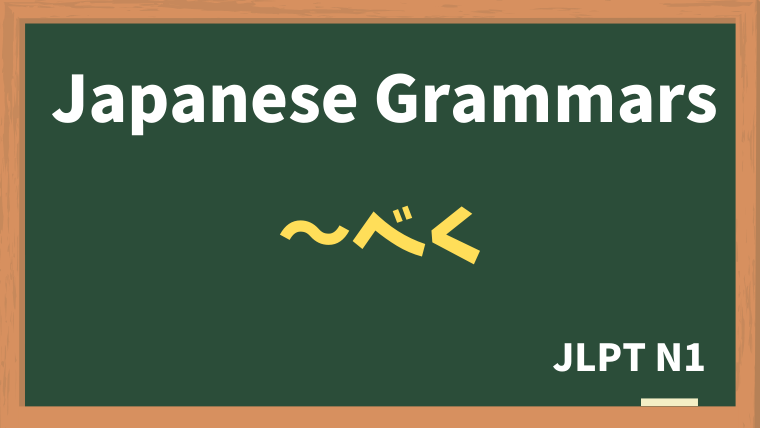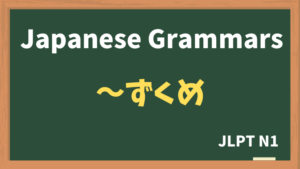
Explanation:〜べく
fa-check-circleMeaning
"〜ために"
Used to indicate purpose or intention, similar to "in order to" or "with the aim of" in English. It is a formal and literary expression, often used in written language or formal speech, to describe someone’s purposeful action aimed at achieving a certain goal.
fa-check-circleForm
V(dictionary form)+ べく
※「する」は「するべく」と「すべく」の2つの言い方があります。
fa-check-circlePoints
- Purpose/Intention: "〜べく" is used to express that an action is being taken with a specific goal or purpose in mind.
- Formal and Literary: It has a formal, somewhat old-fashioned tone and is more common in written language, formal speeches, or serious contexts.
- Action-Oriented: The action in the first clause (before "べく") is performed with the intention of achieving the result or goal mentioned in the second clause.
fa-check-circleJLPT Level
N1
Sample sentenes
すぐにその問題を解決すべく、努力いたします。
I will make every effort to resolve the issue immediately.
新商品を海外でも販売すべく、英語訳がついた説明書を作っています。
We are creating instruction manuals with English translations to sell the new product overseas.
JLPT N1に合格すべく、毎日頑張って勉強しています。
I am studying hard every day to pass the JLPT N1.
親の期待に応えるべく、これまで一生懸命がんばってきた。
I have been working hard to meet my parents' expectations.
野菜嫌いを克服すべく、色々な調理法を試しているところだ。
I am trying various cooking methods to overcome my dislike of vegetables.
Vocabulary
| Japanese |
English | |
| 解決する | かいけつする | to solve |
| 説明書 | せつめいしょ | instruction |
| 克服する | こくふくする | to overcome |






